Opinion

Even amid a pandemic, I have heard a number of people continue their commitment to giving up foods that we societally understand as “bad.” In times of crisis and heightened levels of anxiety, the desire to better oneself — to feel control over certain aspects of one’s life — can increase. I witness people panic about the possibility of gaining weight while in quarantine or brag about their excessive exercise via social media. To be clear, there is nothing inherently wrong with wanting to include more fruits and vegetables into one’s diet or wanting to devote time to exercise, but many restrictive choices around food are influenced by diet culture intersecting with one’s values. My eating disorder started in that exact fashion.
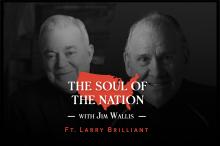
Dr. Larry Brilliant, an American epidemiologist who helped eradicate smallpox in the 1970s, and Rev. Jim Wallis discuss the current administration's response to the COVID-19 pandemic. Brilliant outlines the moral, ethical, and scientific responses needed to respond effectively to the coronavirus.
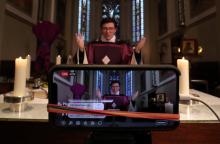
This moment when you’re pausing to re-imagine Easter worship is ripe with possibility. How can you invite folks in the congregation to share and to lead? Yes, you can invite specific individuals to prerecord Scripture readings or prayers, but why not let them share their hearts? Ask a few folks to share, in 60 seconds or less, how they’ve see the body of Christ love and serve during this season.

As the plague continued to spread with every cough, they blamed a lunar eclipse and the malignant forces of Saturn, Jupiter, and Mars for deadly vapors arriving on currents of air, passing into the blood stream. They hypothesized that this “corrupted air … penetrates to the heart” and “destroys the life force.” From where else could this curse have come? A product of “divine will” they decreed, and urged the people “to return humbly to God.”
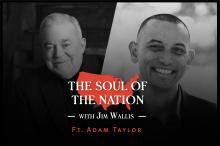
As the nation tries to slow the advance of the coronavirus pandemic, most of the nation is engaged in responsible social distancing. In this episode of our Sunday Sermon in a Pandemic series, Sojourners Executive Director Adam Taylor and Rev. Jim Wallis share their thoughts on biblical teachings that can guide us through these times when the staggering devastation of the COVID-19 pandemic ravages our nation — and the world — after months of unconscionable inaction by President Trump.

COVID-19 ignores the social constructs we've made to disregard one another.

The likely death toll numbers confirmed this week by medical authorities as a result of the coronavirus pandemic are staggering.
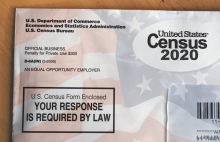
Faith leaders are working creatively to spread the word about the census by posting information on social media, preaching on the census during remote worship services, and placing op-eds in local outlets. We will not let a global pandemic stop us from making sure every person in this country receives the representation and resources they deserve.

We have survived catastrophe in the past. And not just survived – ultimately, we thrived.
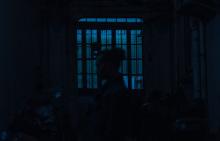
This past Sunday, some of the only Christians legally permitted to gather in person for worship in many states were those of us who gathered for worship in prisons. I am a chaplain at a women’s minimum custody prison, and I welcomed my congregation to worship with the words, “Tonight we are not just worshipping for ourselves. We are standing in the gap for Christians in the whole state and in much of the nation who are not permitted to gather together to read the lectionary, say the Lord’s Prayer, or celebrate the Eucharist.'
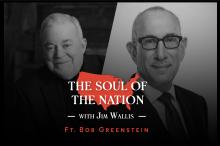
CBPP President Bob Greenstein examines what the $2 trillion stimulus bill means for Americans.

Being black in America is a privilege coupled with unique challenges. The privilege is possessing a heritage authentic to only our diaspora no matter how littered and pained our history may be. As a black man, I did not understand the challenges wholly until I grew older. For black women, the challenges are similar but with added layers that exist because of our American male driven capitalistic based economic silo.

Between 1347 and 1352, 'The Great Mortality' touched a third of Europe's population.

As President Trump has said he’d like to see “packed churches all over our country” on Easter Sunday to help him re-open the country and restart the economy, which he apparently thinks will help him get re-elected, we need the words of the Lord’s Prayer more than ever. The call to reopen comes despite the exact opposite instructions from health are professionals, along with governors and mayors across our nation, to maintain our social distance and closures until the danger of this modern plague are past us. Trump’s dangerous invitation to take our worship and prayers back into our churches before it is safe to do so is not only monstrous political irresponsibility, but religious sacrilege.

The church is called to meet Jesus in the streets with the homeless — for in a time when people are called to shelter in place they have no place to go. The church must also meet Jesus in places like Flint, Mich. where poor people who are already suffering from respiratory conditions related to contaminated water are amongst those at highest risk.

In this moment, Chinese and Asian American communities are facing the double stress of having to reckon with the racism and xenophobia they encounter, compounded with having to deal with the virus outbreak itself.

We can make radical change more quickly than we imagined. COVID-19 and climate change demand nothing less.
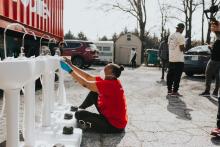
Lecrae and Pastor Terence Lester teamed up to build portable hand-washing stations.
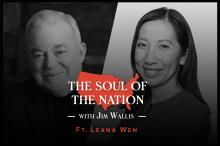
Jim Wallis speaks with Dr. Leana Wen, an emergency physician, public health leader, and a passionate advocate for patient-centered health care reform.
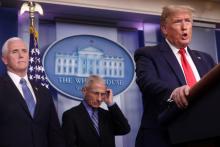
I suspect Trump thought I, a pastor, would be overjoyed by this news. After all, Easter is the most sacred day of the Christian year. It is the day we celebrate life over death and hope over fear. The thought of watching my congregation gather on Zoom for this holiest of days has left me sad and discouraged. I’ve silently mourned each week that my congregation cannot sing together, or share meals or hugs. Instead, we click a link to see each other’s faces appears in the grid of a computer monitor.